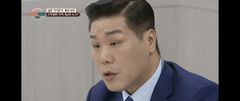
[서울=뉴시스]이재준 기자 = 중국인민은행은 1일 공개시장 조작을 통해 조만간 국채를 차입할 방침이라고 밝혔다.
문회망(文匯網)과 홍콩경제일보, 중국증권망 등에 따르면 인민은행은 이날 공고를 통해 최근 과열 양상을 보이는 채권시장의 안정적인 운행을 위해 현행 시장 정세에 대한 신중한 관찰과 평가를 바탕으로 해서 가까운 시일 내로 대형 금융기관을 상대로 해서 국채 차입 조작을 시행하기로 결정했다고 공표했다.
매체는 이런 인민은행 움직임은 차입 국채를 채권시장에서 매각해 장기금리가 급격히 하락하는 채권시장의 안정을 꾀하려는 목적이 있다고 지적했다.
현지 이코노미스트는 "인민은행이 공개시장에서 국채 매각 작업을 벌일 수 있다는 걸 의미한다"며 10년채 수익률이 역대 최저로 하락한 상황에서 국채를 파는 게 장기채 금리를 안정시키고 금리 리스크에 대비하는데 유리하다"고 분석했다.
중국에선 극심한 부동산 침체가 이어지는 가운데 우량 대출처 개척이 어려워진 금융기관의 자금이 국채시장으로 몰리고 있다.
10년 기한 중국채 금리는 이날 일시 2.183%까지 떨어졌다. 영국 LSEG에서 취득 가능한 2000년 이래 가장 낮은 수준으로 주저앉았다.
국가통계국이 전날 공표한 6월 제조업 구매관리자 지수(PMI)가 2개월 연속 경기확대와 경기축소를 가름하는 50%를 밑돌았다.
경기악화를 새삼 의식한 투자가의 중국채 매수가 한층 활발해졌다.
판궁성(潘功勝) 인민은행장은 지난달 19일 금리상승으로 인해 보유채권 손실이 팽창하면서 결국 파산한 미국 실리콘밸리 뱅크(SVB)를 예로 들면 "금융기관의 대규모 중장기 채권 보유에 따른 리스크에 예의주시해야 한다"다"며 과도한 국채 매입에 경고장을 날렸다.
아울러 판궁성 행장은 "인민은행이 국채 거래의 조건을 정비해왔다"고 언명해 시장개입을 시사했다.
앞서 인민은행이 발행하는 금융시보(金融時報)는 5월 말 "인민은행이 필요할 때 국채를 매각한다"면서 "시장에서 국채 매매를 통해 유동성을 관리할 생각"이라고 보도했다.
인민은행이 보유한 국채는 현 시점에는 1조5240억 위안(약 288조7370억원)에 머무르고 있다.
시장에선 인민은행이 미보유 국채를 차입해 매도하는 공매도 가능성도 배제할 수 없다고 관측하고 있다.
◎공감언론 뉴시스 [email protected]






